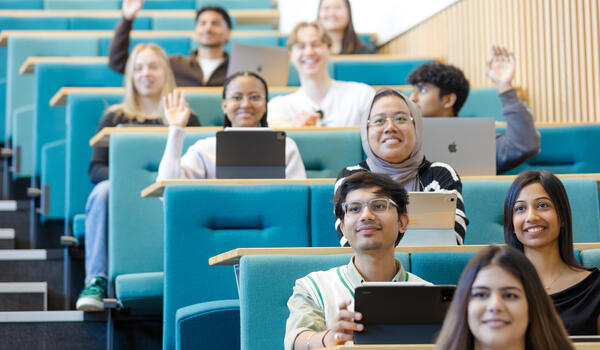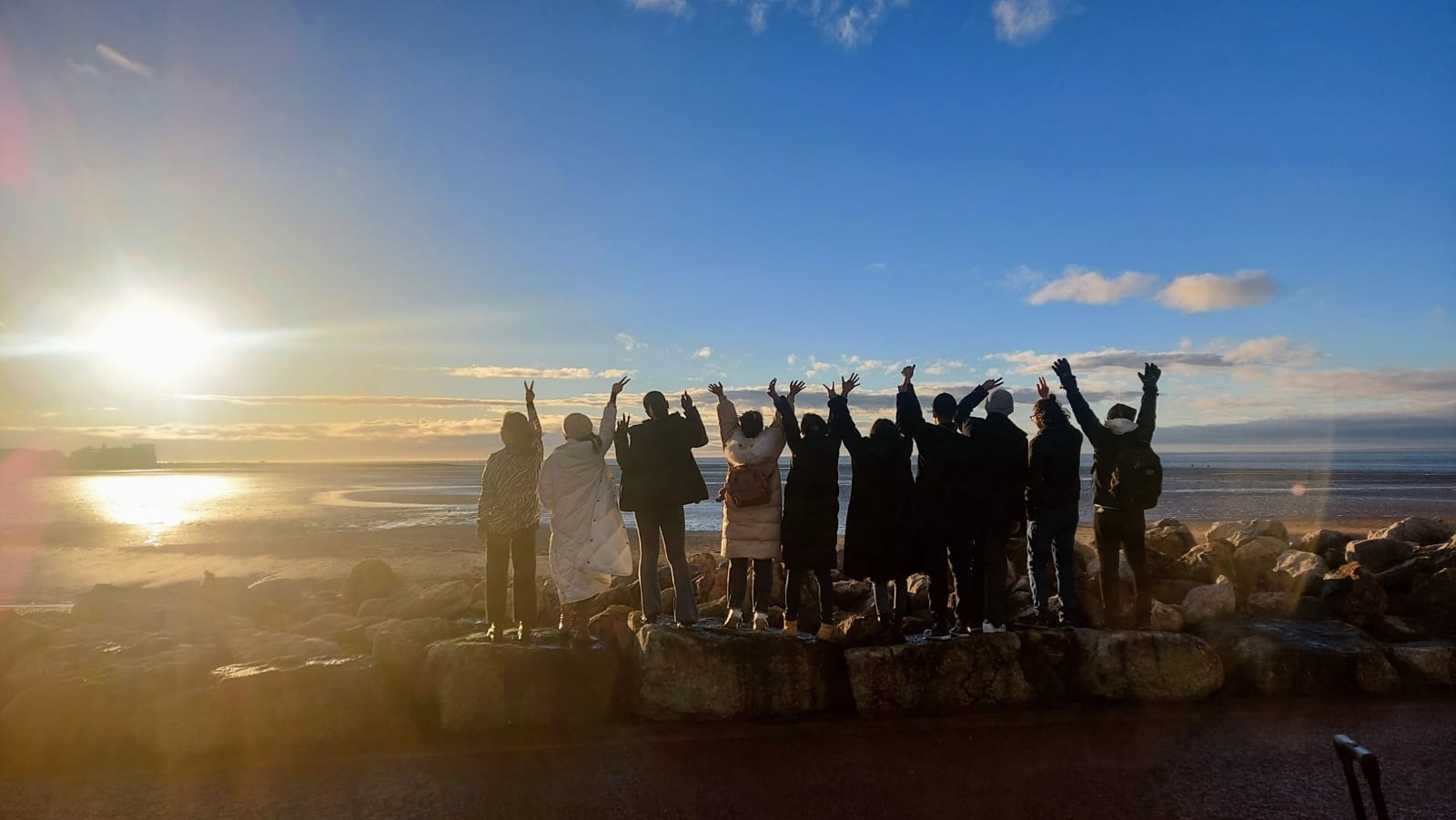Your journey with a global university
Our programmes are designed to develop the following strengths in our graduates.

Humanities, arts and social sciences offer important and innovative perspectives on the topics and debates that are shaping our futures.
We empower students to develop their individual voices and skills, while also recognising how bringing our unique voices together can make a difference in the world.
.jpg)
Our programmes are designed to develop the following strengths in our graduates.
Having a high level of skill and knowledge about your subject

Being fully prepared for your career and professional in your approach.

Being inclusive and socially responsible in your outlook, and an engaged global citizen

As a Lancaster University student, you will find that development of these attributes is embedded within teaching and learning throughout your degree. In the Faculty of Humanities, Arts and Social Sciences (FHASS), part of this development takes place in our unique Discovery modules.
Working alongside fellow students from across arts, humanities and social sciences degrees, these modules help you explore how the subjects you are studying impact and influence today’s world. You’ll develop professional competencies, personal resilience and emerge more confident about your future path.
Your programme includes a first-year module where you will discover how you connect to one of the big themes for our subjects – justice, identity, or the global – and become familiar with a host of resources and networks to ensure you are supported in your studies and your personal development.
The module you take depends on the School in which your degree is based.
This module explores the role of the arts in building community, identity and confidence. You will engage with a variety of different art forms (such as painting, theatre, fiction and film) and develop your own voice via collaborative projects such as a podcasts, video essay or presentation. You will also engage in individual critical reflection for example via a blog, journal or research project.
This module fosters co-operation, intellectual experimentation and self-assurance.
What does it mean to think in and about the world? This module will draw on disciplines from across the School of Global Affairs to think about the very different ways in which the world can be imagined.
What are the ideas that have framed or limited our understanding of the world and others in it? How can we challenge existing narratives and explore alternative perspectives?
How do we make sense of justice? What issues of justice and injustice do the Social Sciences explore? What questions are asked, what evidence is used and what changes do these disciplines hope to inspire?
In this module you will be introduced to the ways in which subjects in the School of Social Sciences approach and make sense of injustices and justice. By comparing and contrasting what people in these fields read, research and talk about when faced with these issues and experiences, you will gain a clearer understanding of your discipline, how it is studied at university level and how it makes sense of the world.
Additionally, you will develop the characteristics and critical thinking skills that are valued in your discipline. In short, you will explore both topics and your discipline’s unique orientation to them, giving you a better sense of what it means to be part of your new academic community.
The focus of the second year is employability. Module options are designed to build your career skills and focus your mind on the professional pathways open to arts, humanities and social science graduates.
Hone a strong sense of purpose and gain the satisfaction of applying your skills and knowledge to a community, charity or student-led initiative.
Your challenge will be to take responsibility for arranging and completing a voluntary or fundraising activity—locally, virtually or during vacation periods at home. You will need to show that you have made a positive difference through this activity.
In class, you will be asked to reflect on this experience and explore the wider social impact of the work. In doing so you will build your confidence in your ability to contribute meaningfully to society through your future personal and professional path.
Not all professional contexts are the same – and within any organisation there are diverse people with varied backgrounds. This module focuses on enhancing your intercultural competency and cultural awareness, with a particular emphasis on ‘place-based’ learning. Considering the cultural dynamics of the North West of England and the broader UK helps us reflect upon intercultural dynamics in very different locations.
Through analysis, discussion and self-reflection you will strengthen your ability to navigate diverse workplace settings and enhance your employability in today’s interconnected world.
You are invited to collaborate in an interdisciplinary team with other students as you explore major global challenges such as climate change, inequality or emerging technologies.
Throughout the module you will examine how the humanities, arts and social sciences contribute to understanding and addressing complex issues. Classroom discussions and activities focus on the process of identifying problems and considering innovative, ethical responses, while helping you to consider and articulate the relevance of this work to your personal and professional development.
Explore how ideas can be developed into real-world projects with lasting value. Through hands-on collaboration and problem-solving, you will develop innovative projects, learn how to bring ideas to life and explore ways to sustain them.
Whether you are working in a team or individually, you will be encouraged to experiment with different approaches to making a difference in artistic, cultural, social and community spaces.
As you come to the end of your degree, you’ll develop the crucial ability to apply your knowledge and skills to diverse contexts. Engage with a topic of contemporary relevance on the world stage and discover your potential to make a difference.
What happens when radically different forms of art meet? How do these fused forms change our understanding of the world? We will draw on material from different periods and continents, to explore works of art where, for example, film meets history, poetry meets philosophy, fine art meets sociology, religion meets fiction, and theatre meets politics.
What does it mean to imagine a world without borders? Using materials typically derived from case studies, reports, archives, film, television and literature, this module foregrounds interdisciplinary approaches. You will be encouraged to develop your understanding of migration and displacement, and to envision alternative global migration futures in ways that can impact future policy, political and societal perspectives.
What are the possibilities and pitfalls of community and citizen action, voice and agency? This module uses interdisciplinary case-studies to critically examine collaboration with communities.
You will participate in activities such as a mock citizens' assembly, visit local community groups and hear from a range of guest speakers on concepts like power, race, gender, class, affect and justice.
What do we understand by queerness? Looking back at earlier interpretations, we imagine how queerness might evolve — how it might be lived, felt and understood in the future.
Who does technology benefit or harm, and what should its role in society be? This module examines the social and ethical issues surrounding the development of modern technologies and their use in the modern world, with a vision to shape our future relationship with technology.
How do ideas understand, transform and conserve the world? In this module we will study examples of powerful ideas such as the nation, free speech, liberation, the free market, culture and nature. We will use case studies to help us explore the relationship between analysis, imagination and practice.